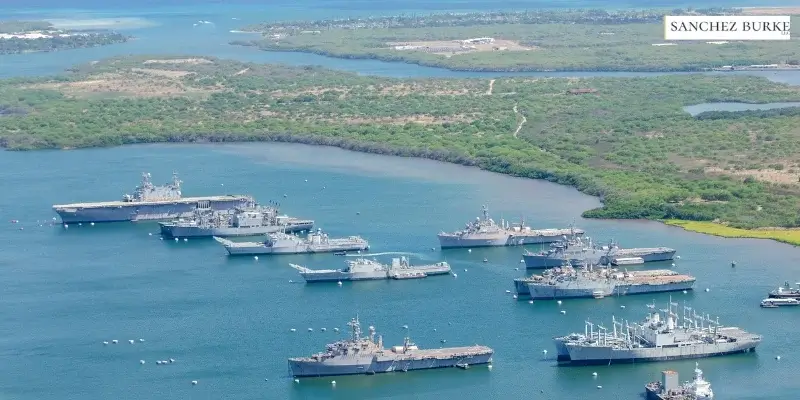
Why You Need a Maritime Lawyer in Louisiana?

If you work on or around the waters of Louisiana, understanding why you need a maritime lawyer in Louisiana is very important. Maritime law is a complex, distinct body of laws specifically designed to tackle this unique environment, and if you get injured on a vessel or in a maritime-related accident, turning to a personal injury lawyer might not cut it.
The Risks of a Maritime Career
From shrimp boats in Venice to offshore platforms near Cameron, Louisiana’s maritime workforce keeps the Gulf economy moving. But the work is dangerous. Over 400,000 U.S. workers choose to make their living on the water. However, a maritime career doesn’t just mean long hours and tough conditions—it means accepting that the chance of a work-related fatality is 40 times higher than in other careers and the possibility of becoming one of the 42.6% of injured maritime workers who suffer from injuries requiring amputation.
Whether you’re a deckhand, an offshore oil worker, or a tugboat crew member, the risks are real, and when things go wrong at sea, they can go very wrong, very fast.
Some of the most common hazards maritime workers face include:
- Slippery and unstable surfaces
- Heavy machinery and equipment
- Remote locations
- Severe weather conditions
- Fatigue and exhaustion
- Fire and explosions
- Mental and emotional strain
These are the everyday realities for thousands of maritime workers in Louisiana and along the Gulf Coast, and when injuries happen, they fall under a completely different set of rules than traditional workplace accidents.
What Is Maritime Law?
Maritime law, also known as admiralty law, governs activities on water, like in oceans, rivers, and lakes. It covers a wide range of issues, from shipping and navigation to the rights and duties of seafarers and offshore workers. Unlike general personal injury law, maritime law has its own set of rules, regulations, and protections that are crafted to handle the risks and responsibilities inherent in the maritime industry.
For example, if you’re injured while working on a vessel or offshore rig, your claim often falls under maritime law, which includes protections like the Jones Act and the Longshore and Harbor Workers’ Compensation Act (LHWCA). These laws provide remedies and benefits that aren’t available under traditional workers’ compensation.
Maritime Law vs. Land-Based Laws: What’s the Difference?
A big distinction between maritime law and land-based law is the difference between regular workers’ compensation laws and maritime laws. In Louisiana, workers’ compensation primarily applies to injuries that happen on land or in non-maritime environments. These laws limit the amount of compensation you can receive, and they often restrict your right to file a direct claim against your employer.
The Jones Act law, however, allows injured seamen to bring negligence claims against their employers so they can seek damages that cover lost wages, medical expenses, pain and suffering, and much more.
The Longshore and Harbor Workers’ Compensation Act (LHWCA) can further complicate things. It covers maritime workers who aren’t classified as seamen but still work on navigable waters, like dockworkers and shipbuilders.
How a Maritime Lawyer Differs From a Personal Injury Lawyer
Many think a personal injury lawyer should be able to deal with a maritime accident. However, that’s not the case. While both types of lawyers aim to get you compensation for your injuries, maritime lawyers operate in a very different legal arena.
Personal injury lawyers focus on state law claims, like car accidents, slips and falls, or medical malpractice, and their knowledge is primarily rooted in tort law. Maritime lawyers, on the other hand, must understand federal statutes, international treaties, and case law that only apply to maritime activities.
For example, maritime cases often involve:
- The Jones Act for seamen’s injuries
- The LHWCA for harbor workers
- The Death on the High Seas Act for deaths beyond state waters
- The general maritime law for unseaworthiness claims
That difference in focus matters more than most people realize. Maritime cases don’t follow the same rules as typical injury claims, and assuming they do can cost you not only time and money but also risk losing your rights. If the accident that led to your injury falls under maritime law, you need an attorney who knows how to interpret the Jones Act, identify vessel status, and navigate the federal court system.
FAQs
Q: Can Maritime Law Claims Involve Environmental Hazards, Like Oil Spills or Toxic Exposure?
A: Yes, maritime law claims can involve environmental hazards, like oil spills, chemical leaks, and hazardous waste incidents that could even affect coastal communities. These kinds of claims can involve complex liability issues among multiple parties, including corporations and government agencies, and they require an experienced maritime lawyer who’s well-versed in pollution laws.
Q: How Does the Law Treat Injuries on Vessels That Travel Between States?
A: When a vessel travels an interstate route, maritime law still applies as it’s a field governing navigable water that crosses jurisdictional lines. Injuries occurring on these vessels are subject to federal maritime law, which can preempt state laws. This means an experienced maritime lawyer is critical when determining applicable rules and where to file claims.
Q: What Happens if a Maritime Injury Occurs on a Recreational Boat Rather Than a Commercial Vessel?
A: Injuries on recreational boats generally fall under state personal injury law, as opposed to maritime law. There are exceptions, however, like if the vessel is engaged in commercial activity or if it navigates certain waters under federal jurisdiction. This distinction affects the types of claims available and the legal processes involved.
Q: Are Maritime Workers Entitled to Benefits if Their Injury Happened on a Foreign Ship Docked in Louisiana?
A: Potentially, yes. If a maritime worker is injured on a foreign vessel that’s operating in U.S. waters, federal maritime law could apply. Claims can become complicated because of issues regarding jurisdiction and applicable foreign laws, but protections like the Jones Act could still offer remedies depending on the worker’s role on the vessel.
Legal Help Can Make a Difference
If you’re hurt working on Louisiana’s waterways, don’t assume state workers’ compensation laws are enough to protect you.
At Sanchez Burke, LLC, our experienced maritime accident lawyers understand the ins and outs of maritime law and how it uniquely applies to local workers. We’re equipped to guide you through the complicated legal waters and help secure the compensation you need to recover and move forward.
awards & affiliations










